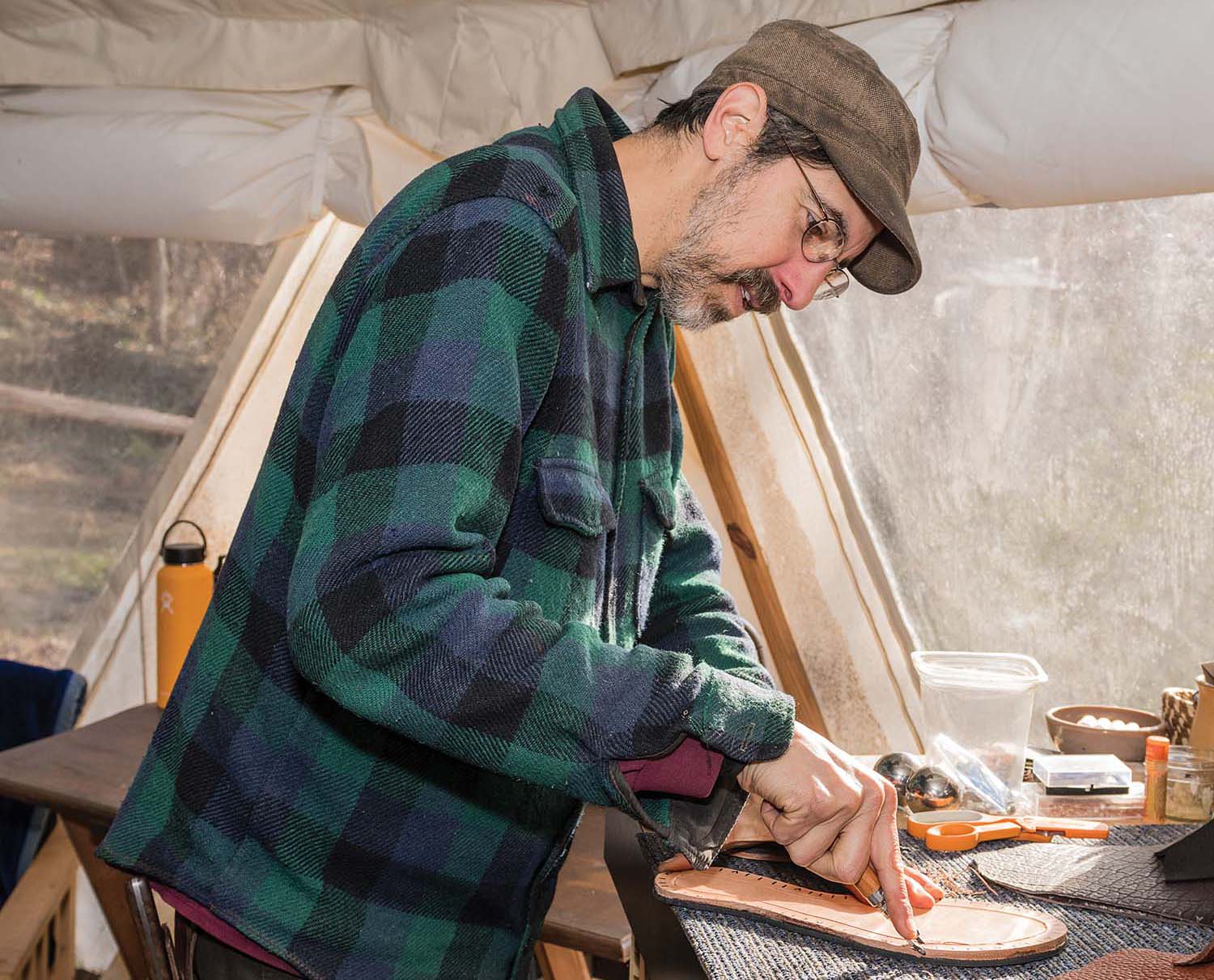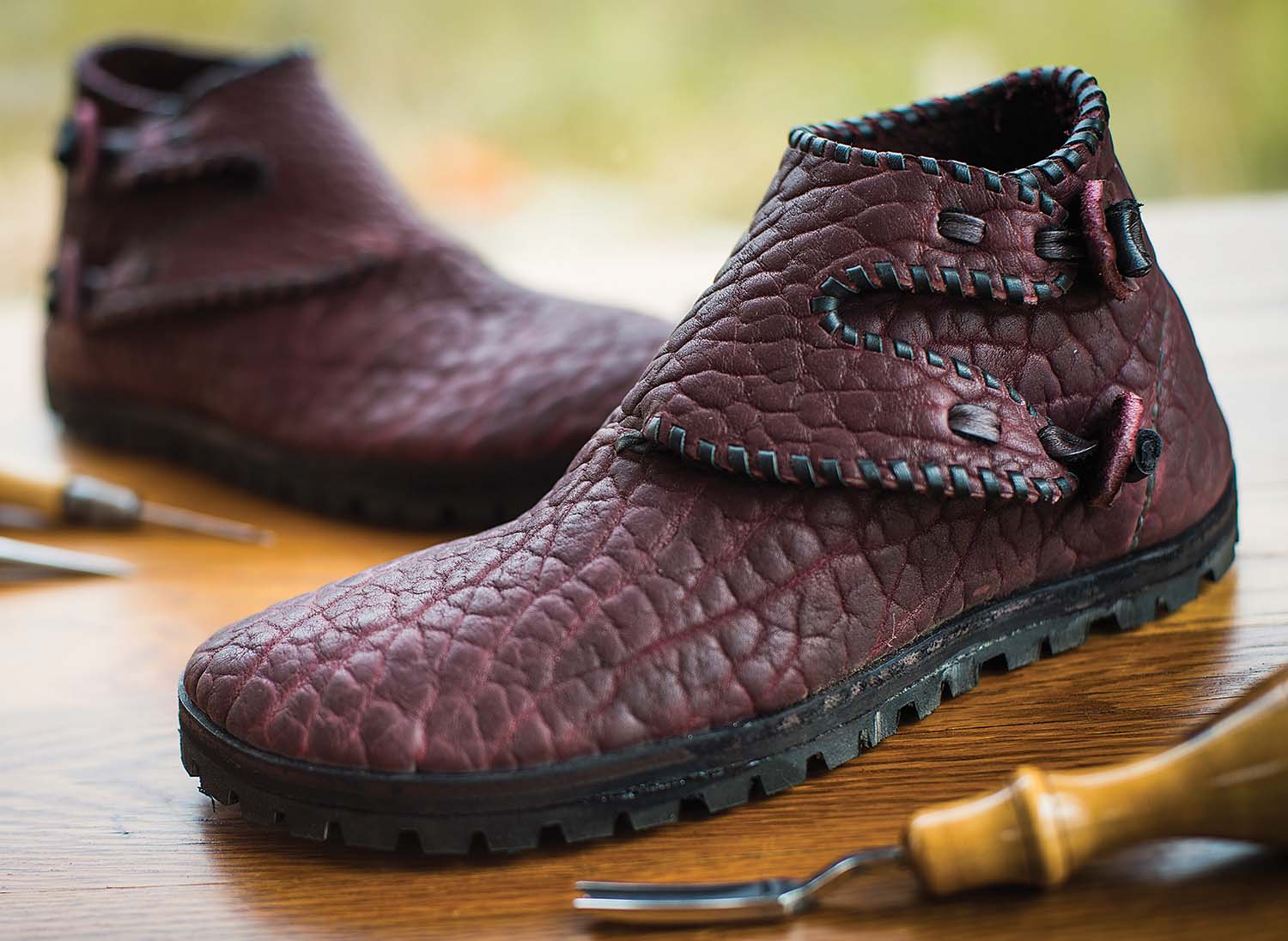
By now, Michael Ismerio is used to the confused stares he gets when he tells people what he does. “Nobody knows the word ‘cordwainer’ because we don’t have them anymore,” he says. “Our culture doesn’t need a word for people who make shoes.”
However, the obscurity of his craft is a relatively recent development, the Barnardsville-based maker points out. For most of humanity’s presence on the planet, people have been intimately connected with providing protection for their feet. “The process of making shoes is the process of tying ourselves back into our human history,” Ismerio says.
Although he does produce shoes to order, Ismerio’s passion is helping others make their own during workshops at his home studio. He sees the practice as an extension of his other instructional work: he teaches nature connection and leadership with School of Integrated Living in Black Mountain, and he also offers private lessons in old-time fiddling and square-dance calling.
Students at Ismerio’s Scandinavian Turnshoe workshops learn to complete the entire process by hand — a project of four eight-hour days. Before the participants even touch leather, they spend the entire first day on making duct-tape molds of their feet and transferring that custom fit to paper templates. “Making a proper pattern will save you tons of grief down the road,” he says, noting how applicable that advice is to other creative endeavors.

The second day of cordwaining introduces another new vocabulary word: skiving, or tapering the edge of leather to make it easier to work. Participants cut, trim, and poke the material to the desired shape, then sew the pieces together as “homework” on night three of the workshop. On the final day, Ismerio’s students add soles by painting on layers of rubber and glue. They finish up with ornamental details.
For a design that dates from the tenth century, the finished products look strikingly modern. Ismerio calls them his “hiking slippers,” and the description is apt — the shoes have a profile reminiscent of low-top Converse, but their mottled bison leather and hand-applied soles give them a natural vibe. They close using a button and flap, not laces, which further enhances their sleek organic lines.
The deeper meaning of his craft comes from a real-life relationship with the material. “Everything on the shoe came from the earth, even the rubber,” he points out. “How do I connect with where these things came from, how they became the clothes on my body?”
But he says the connection he develops with his students over the course of his workshops is even more important. “My job as a mentor is to create a space where people can take on a challenging project but still be supported,” he explains. “We’re going on a journey together, from excitement and curiosity to hard work and doubting ourselves — then overcoming that doubt and finishing up with something beautiful.”
Michael Ismerio, Barnardsville. For details, e-mail michael.ismerio@gmail.com or visit michaelismerio.com.